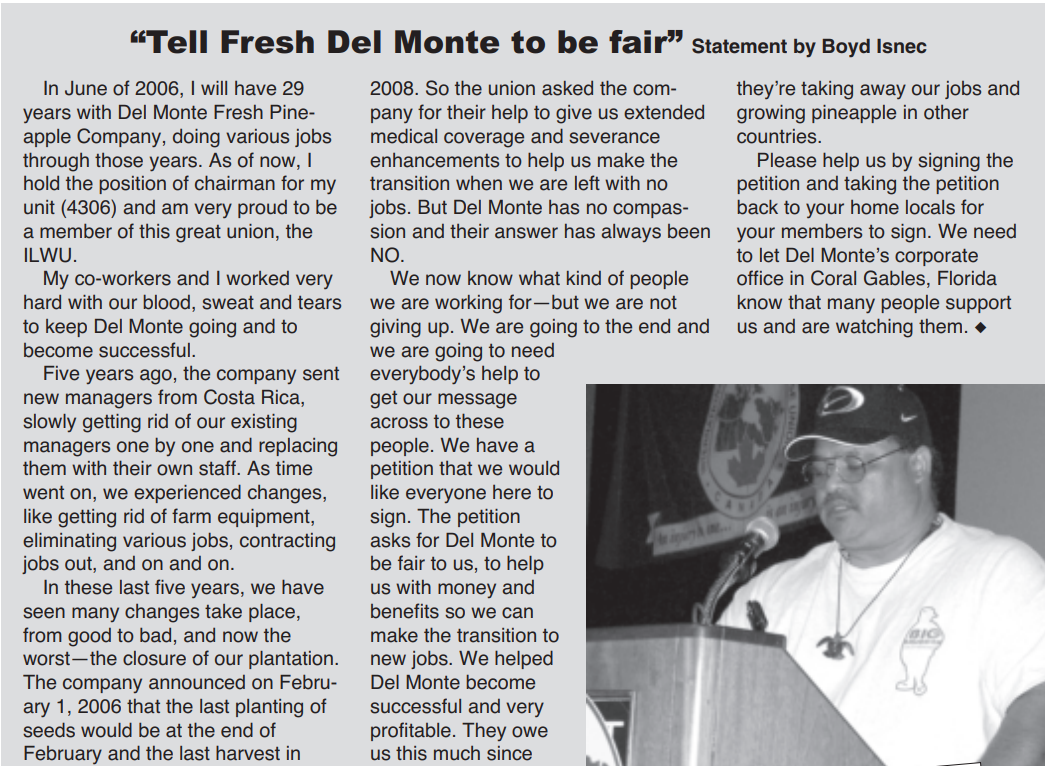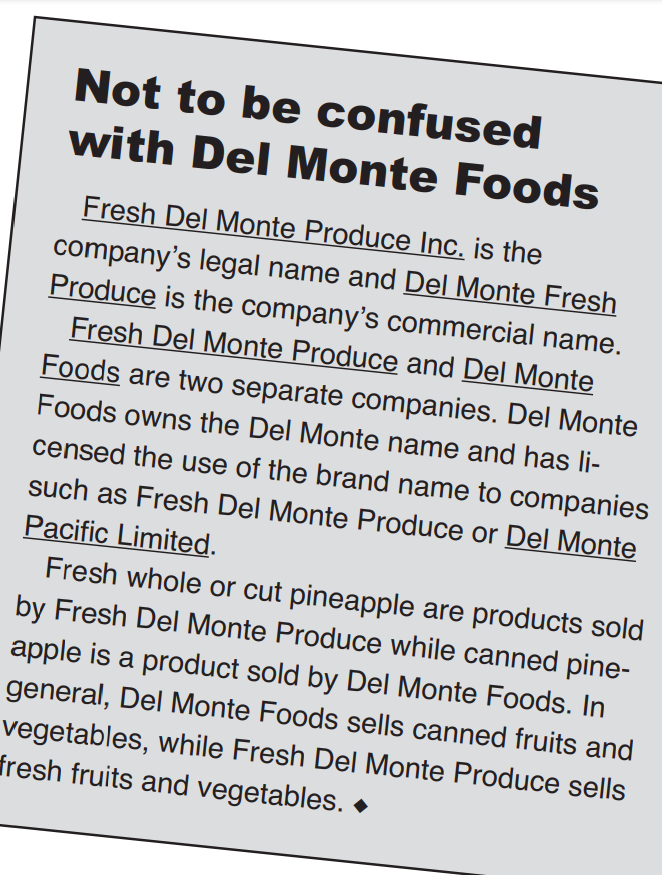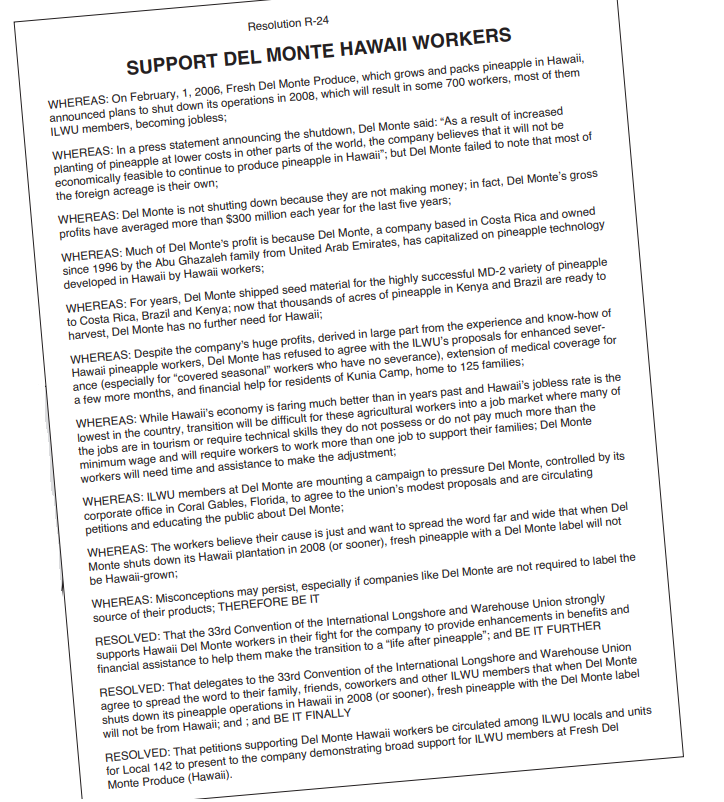
ILWU delegates to the International Conventiion in Vancouver sign a petition in support of Del Monte workers (see petition, left).
The petition calls for Fresh Del Monte Produce to provide extended medical coverage and severance payments to all regular and seasonal workers. In addition, the petition calls on the company to provide the funds needed to maintain and transfer the 125 plantation houses in Kunia Camp to the residents.
Overwhelming support
The Convention delegates from the Mainland and Canada responded to the resolution and petition with overwhelming support. Peter Peyton, an ILWU member from Local 63 Marine Clerks, suggested an amendment to the resolution that all ILWU locals donate funds to make a film or video about the closing of Del Monte. Peyton said the story about companies like Fresh Del Monte was very important and needs to be told to as many people as possible. He suggested asking Michael Moore to make the film. Moore’s film “The Big One” exposed how companies are making record profits, then laying off workers closing factories, and moving to foreign countries to make even more profits.
Other speakers spoke in favor of making this an international issue to put pressure on Fresh Del Monte’s business in Europe, South America, and Africa. More speakers pledged money from their locals and promised to collect signatures for the petition.
About $3,000 in donations were collected and several thousand dollars were pledged. The resolution and petition were the first pieces of a long-term, public campaign to put pressure on Fresh Del Monte Produce to fulfill its moral obligations and responsibility to the workers and people of Hawaii. The campaign was off to a good start.
Fresh Del Monte— No longer grown in Hawaii
“Grown in Costa Rica”— this will be on the label of Del Monte Gold® Extra Sweet pineapple after 2008, when Fresh Del Monte Produce harvests its last Hawaiian pineapple and shuts down its Kunia Plantation on the island of Oahu in the State of Hawaii.
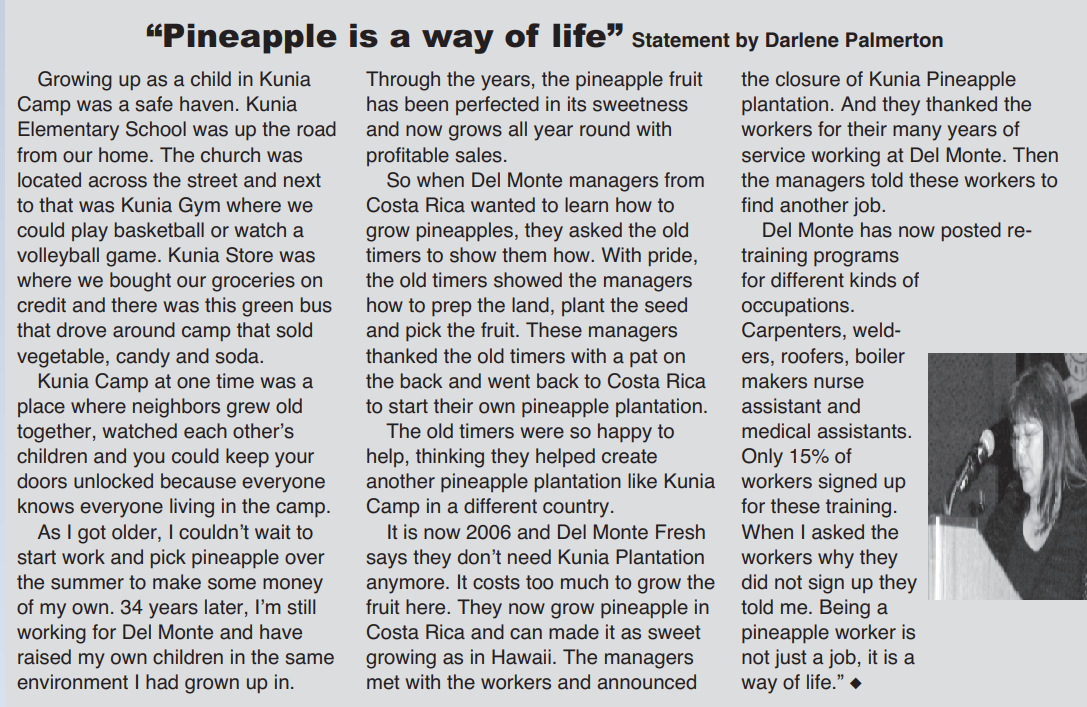
American consumers will probably still think Del Monte’s pineapple comes from Hawaii, as Hawaii produced most of the world’s pineapple between 1900 and the 1960s and is better known as the “Pineapple State.” [The official nickname for Hawaii is “the Aloha State” which was adopted by the State Legislature in 1959.] American consumers have also grown to trust the Hawaii label, knowing they are getting premium, high quality pineapple, grown in environmentally safe and sanitary conditions.
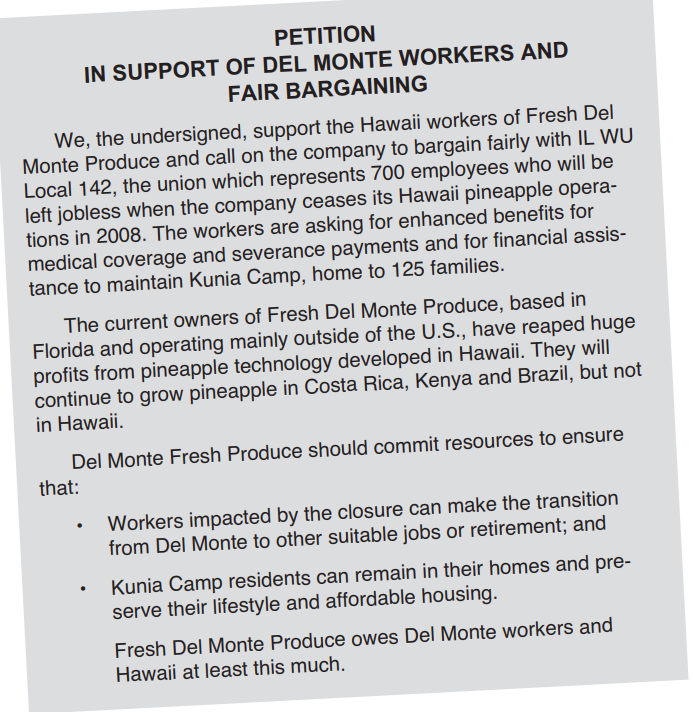
Dole Foods and Maui Land and Pineapple Company will continue to grow pineapple in Hawaii, but these companies will now be competing against Del Monte’s cheaper Costa Rican pineapple.
Even with higher wages and costs, Hawaii has been able to compete in the world market because of advanced technology and cultivation practices. Hawaii’s average yield of 33,000 pounds per acre for fresh pineapple is the highest in the world and almost double the world average of 17,000 pounds per acre. However, by using the same Hawaiian technology, Del Monte’s Costa Rican plantation has steadily increased its yield to 26,000 pounds per acre with workers who are paid between $1.00 and $1.50 an hour, instead of the $14 an hour average in Hawaii.
This an example of the unfair trade and unfair competition that is hurting US workers and the American people. How can US workers compete when multinational corporations are allowed to take technology created and perfected by US workers to a low wage country and then use that technology to take their jobs away?
The trade policies pursued and enacted by President Bush and the Republican majority in Congress only promote and accelerate the export of technology and American jobs by protecting the overseas profits, investments, and patents of these multinational companies, while doing little or nothing to protect and promote labor and environmental rights.
The ILWU believes the only fair and long-term solution is to raise the wages of foreign workers by negotiating trade policies that enforce labor and environmental rights and require improvements in the conditions of workers and their communities. ◆
